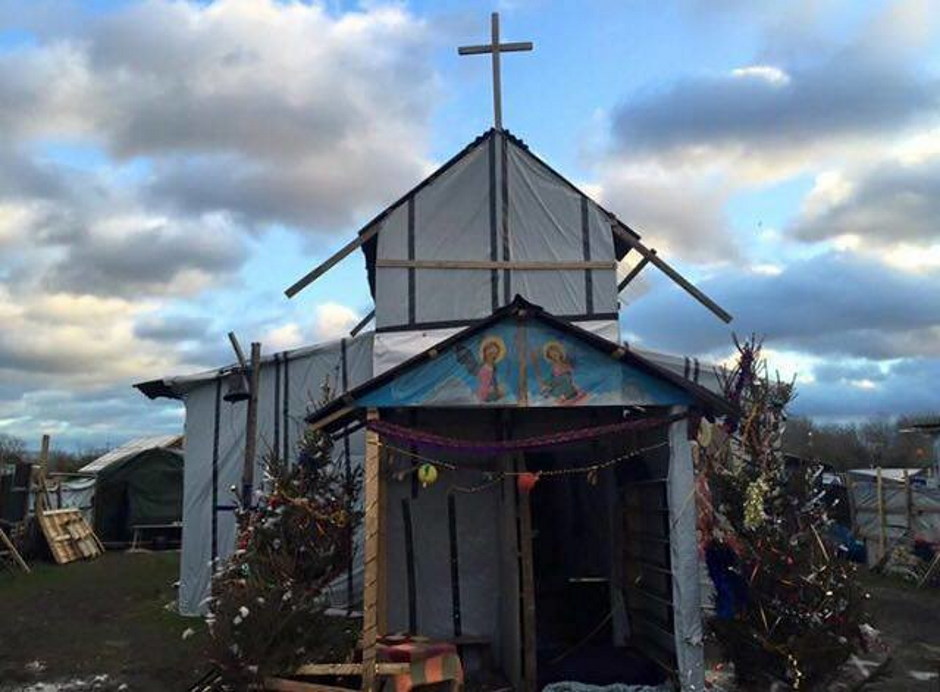Michele Nori, Rose Cairns and Nathan Oxley
Embracing uncertainty, by choice or by necessity, is something migrants, victims of political violence, and people holding a religious belief have in common. What could we learn from their experiences about a broader understanding of living with uncertainty, and how can this inform other domains and contexts?
This was the heart of the debate in one of the interdisciplinary clusters of the STEPS symposium on the Politics of Uncertainty in July 2019.
Four ways to frame uncertainty
Uncertainty is challenging and often constraining, but it can also open up spaces for hope and opportunity. But uncertainty “is not a condition out there in the world”: when we talk about uncertainty, we’re talking about knowledge (or lack of it) of how things are or will be. And there are so many different ways to know about the world that it really matters how uncertainty is understood, discussed and framed, and how boundaries and terms are set.
This applies to the deep questions of life and death asked by religions and philosophical traditions, and it’s also relevant to those under extreme circumstances, for those fleeing persecution, travelling to a new life or dealing with violent conflict. In these circumstances, uncertainty isn’t just about the future: the present may be highly uncertain and unsure, the rules may be unclear, and the past may be obscured, blacked out or contested.
So how is uncertainty framed, and what effects does this have? The discussion at the conference suggested at least four aspects, which intertwine and feed off each other iteratively.
1. Construction
Uncertainties are constructed through cultural and imaginary ‘landscapes’. Examples of this are narratives about climate change or mass migration. A lot of time and money is being spent by politicians and newspapers in Europe to feed a culture of fear of migrants, linked to perceived threats to a local culture and identity that’s presented as simple and unchanging.
This fear is also increasingly feeding into discussions of ‘the climate crisis’ and ‘climate refugees’. Responses – of hostility, indifference, care or hospitality – are culturally embedded, and constantly being reinforced or challenged by the choices made about how to represent the present and future.
2. Production
Uncertainties are produced and reproduced through interactional, everyday experiences; think about migrants facing the unknowns throughout their journeys, or to political violence and its impact on people’s everyday lives. As everyday events unfold, they are interpreted through ideas and visions of risks and uncertainties. They can also reinforce or challenge the way that the uncertainty was first perceived.
To deal with uncertainty, migrants may rely on networks of supportive relatives or friends, and make use of a whole infrastructure of safer routes or private channels to convey money or information.
3. Negotiation
Uncertainties are also negotiated. The way that they are distributed, shared and re-shared is politically charged. Measures to reduce uncertainty for one group can dramatically raise it for another. An example of this is the tightening of borders in Europe against migrants from the Middle East and North Africa. This may be aimed at making local populations feel more secure, but it radically increases the threats and uncertainties for those travelling to seek a safe place to live, as attested to by the deaths in the Mediterranean and the English Channel or the dire conditions in refugee encampments in Calais or Greece, or at the US/Mexico border.
For migrants, the uncertainty does not end when they arrive at their destination – they are often subject to absurd laws, raids, discrimination and threats of violence long after they settle in a new country. Migrants are also more likely to experience financial insecurity, deal with the black economy and face unsafe living conditions than settled populations.
4. Existential uncertainties
Finally, uncertainties are also existential, and experienced differently as part of one’s life-world. Think about the values, the maps and the rituals different religions offer to help their adherents live ‘happily’ (or not so happily) with uncertainty as an inherent feature of life. Belief in a spiritual dimension does not necessarily mean more certainty about anything in the physical world: rather, it positions the uncertain physical world in relation to someone or something eternal and unchanging.
In some cultures, rituals or rites-of-passage depend on a migration of some kind: risky, adventurous journeys to show one’s capacity to navigate through uncertain and uneven landscapes. This makes the recognition of uncertainty – and responding to it – central to the process of assuming the responsibilities and rights of adulthood.
Experiencing uncertainties
The four aspects above suggest that the definition of uncertainties depends on how people live with them and what they make out of them, and the social changes these dynamics generate. Individuals, collectives and institutions are all linked and in tension with each other in this process.
Institutions, from insurers to border police, often exercise power in trying to reduce uncertainty by generating more knowledge or seeking to ‘govern’ or ‘manage’ risks. But there are many uncertainties – contested, complex, chaotic or unknown aspects of life – that can’t be controlled in this way. More information, in these cases, can give the illusion of certainty, but does not necessarily reduce it. And as with border forces, mass surveillance or repressive regimes, efforts to control and stamp out risks for some can end up creating more painful consequences for others, as unintended consequences bite back.
When thinking of uncertainty we primarily think of the future, and unknowns, but the past is also a contested terrain, as stories of political violence illustrate especially. Taking stock of past events and experience is critical in informing and influencing future perceptions and expectations. Our history is a patch of educated memories, full of major uncertainties (e.g. where do we come from?).
Believing in uncertainty

In religion, as with other domains of society, uncertainties are subject to the four aspects of framing described above – they are constructed, produced, negotiated and experienced. The language may be slightly different, however. In religion, the words ‘uncertainty’ and ‘certainty’ are less often applied to individual belief: more familiar are the concepts of faith and doubt.
To nourish faith and cope with doubt, religious belonging (as distinct from individual conviction) binds the believer within a community, sustained by stories, doctrines, rituals and practical action. In collective, organised religions, a person does not have to face life’s uncertainties alone, but rather as a member of a body of practising believers belonging to the Divine. This combination of belief, identity and practice gives religion an enduring appeal in an uncertain world, including for those facing dire existential threats to life and health.
But a religious community fails most miserably when it tries to fabricate the certainty which the world cannot give: in other words, when it tries to eradicate uncertainty by clinging to rigid doctrine in the face of lived experience, when it sets itself as a fortress against perceived threats from other cultures or identities, or when it supresses diversity of thought and identity within its own body.
Uncertainty’s what you make it!
Probably the real, challenging question is not one relating to uncertainty, but rather about the idea or expectation of ‘certainty’.
Uncertainty is in fact inherently and irreducibly part of real life. The capacity to face, tackle and take it and to navigate it proactively, depend very much on one’s position and perspective. Institutions and groups who aim to generate certainties fall into the traps described above. The striking thing is that, although uncertainty or certainty may seem to be abstract ideas, this produces concrete and painful effects.
It really matters when states, institutions and religions abuse their authority and power in the pursuit of absolute certainty. In doing so, they conceal important aspects of the real world: diversity of experiences and perspectives, different varieties of knowledge, alternative visions, flexible responses, the ability to prepare for surprise, or openness to change in the light of new information or ideas.
This is one of a series of blog posts by participants following the STEPS symposium The Politics of Uncertainty: Practical Challenges for Transformative Action.
About the authors
Michele Nori is a Core Researcher for the PASTRES project and is based at the Global Governance Programme of the European University Institute (EUI), Firenze.
Rose Cairns is Research Fellow at the Science Policy Research Unit (SPRU) at the University of Sussex.
Nathan Oxley is Communications and Impact Manager at the ESRC STEPS Centre.

Uncertainties can make it hard to plan ahead. But recognising them can help to reveal new questions and choices. What kinds of uncertainty are there, why do they matter for sustainability, and what ideas, approaches and methods can help us to respond to them?
Find out more about our theme for 2019 on our Uncertainty theme page.
